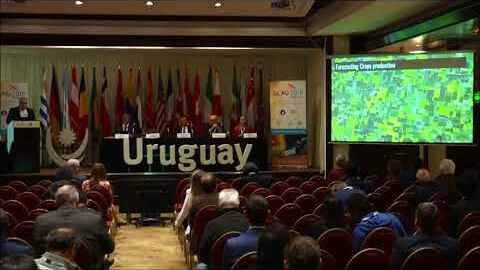Published on July 11, 2018
GLAC 2018 - Plenary 6: Democratizing Space Data
Global Space Applications Conference - GLAC 2018
21 - 23 May 2018
Plenary 6: Democratizing Space Data
Today’s space systems provide enormous volumes of data. Data sets have become so large or complex that traditional data processing applications are inadequate. Particularly Earth Observation with the most recent high-resolution satellites and constellations of small remote sensing satellites are key elements of Big Data. ESA’s Earth Observation download volume by 2022 is estimated to reach 50 Petabytes.
Space systems are the only ones that can offer communications anywhere and any time – for the Internet of Things, Industry 4.0 and Machine to Machine Communications. The integration of 5G and satellite communication systems is a prerequisite for autonomous driving. Data availability, privacy and security become hence extremely important.
The collection and processing of data in large quantities raises issues of the protection of privacy. International human rights documents, such as the UN Covenant on Civil and Political Rights and the European Convention on Human Rights provide for the respect for everyone’s private and family life, home and correspondence.
Free access to Space data is vital in particular for developing nations. More recently, discussions have been arising with respect to free data access on the one hand and business models taking profit of Space data funded by the public.
The panel discussed Space applications, Big Data issues and the associated challenges both in the legal framework and from the technical point of view.
